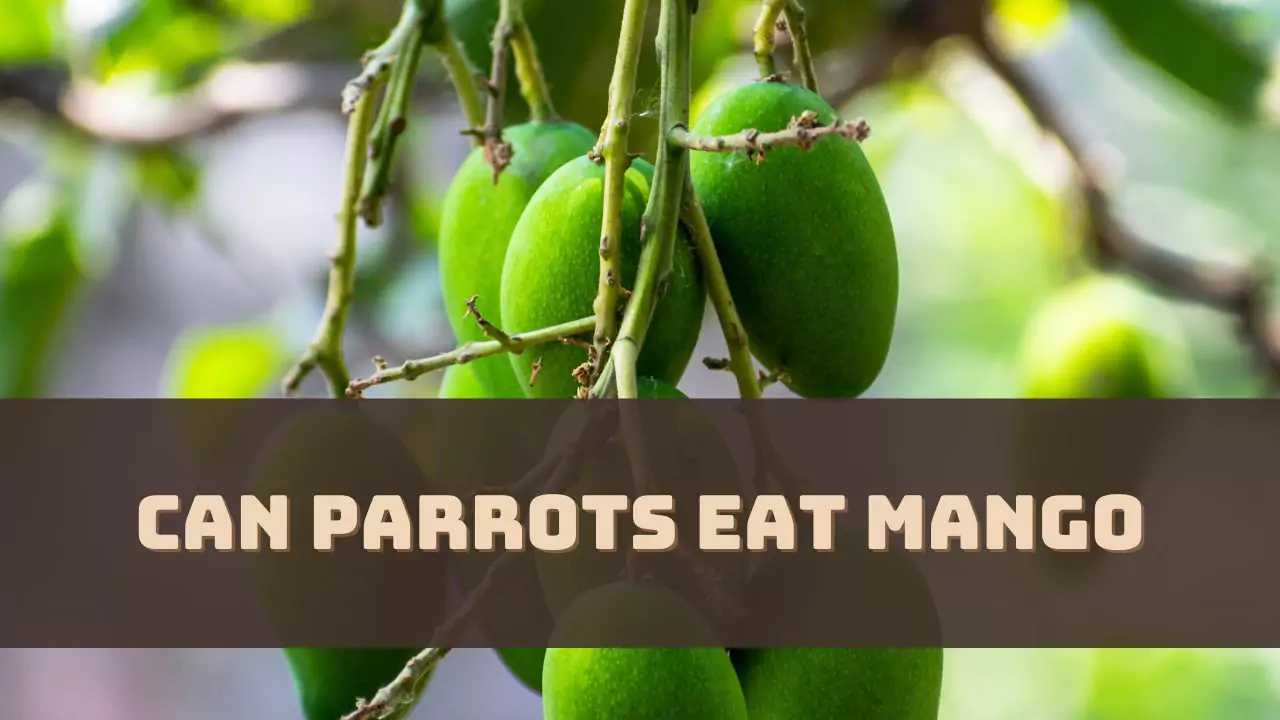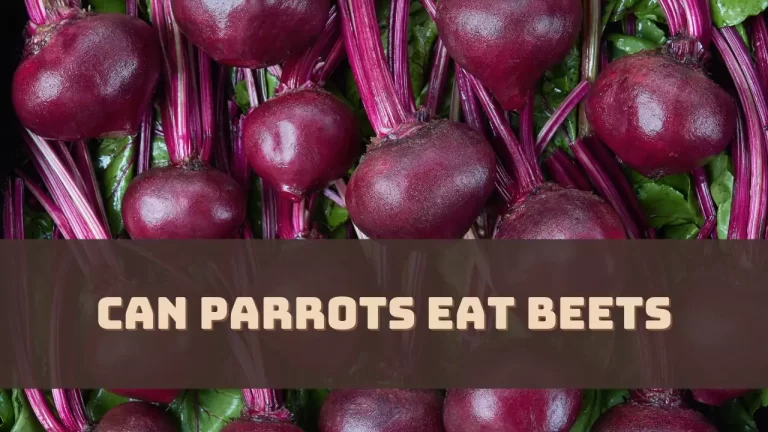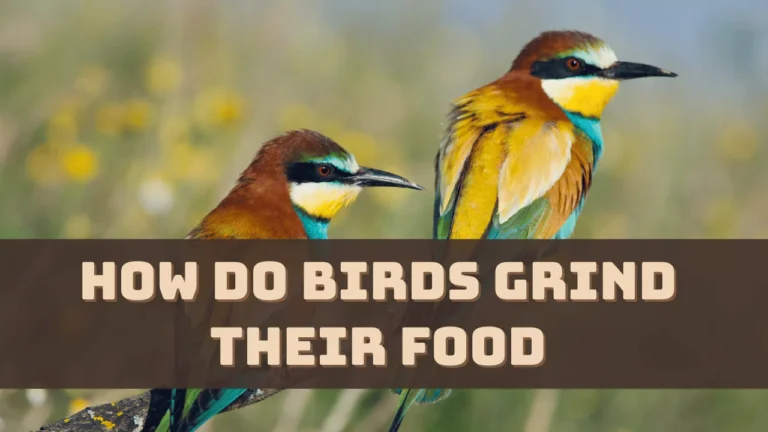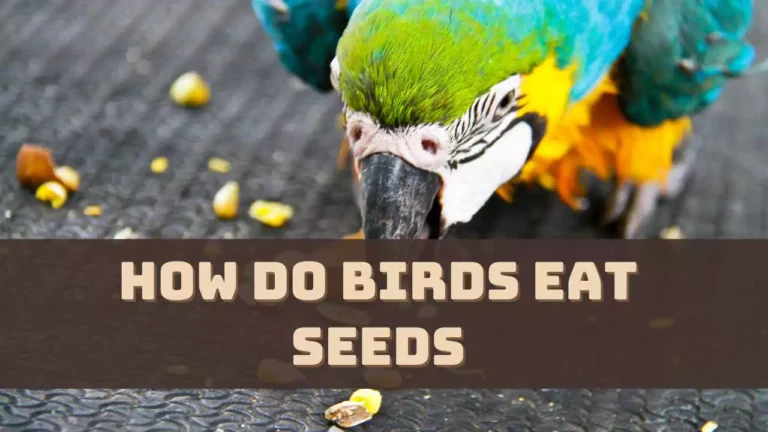Yes, parrots can eat both mango flesh and skin. However, you need to throw away the mango pit as it contains traces of cyanide, which can lead to cyanide poisoning if ingested.
Mango seed can only be edible, if it is cooked otherwise the ripe version is toxic. So, let’s explore the health benefits that come when you feed mango to the feathered friend. Also, learn to understand how much you should feed them.
Why is Mango Considered a Nutritious Food for Parrots?
Mangoes are quite liked by parrots due to their juicy, sweet, and flavourful taste. They enjoy the texture and flavor of the mango and are usually not fuzzy when served along with their balanced diet, still, it should be given occasionally or in moderation.
What are the Nutritional Benefits of Feeding Mango to Parrot?
Mango has many nutritional benefits, such as –
Vitamin C
Vitamin C helps boost the immune system of the bird, reduces blood pressure, heals wounds, clots blood on minor bleeding, regulates blood sugar, prevents respiratory diseases, and protects them against cataracts.
Vitamin A
Mango also has Vitamin A, which boosts the immune system of the parrot. If there is a deficiency of Vitamin A, then it can lead to nasal discharge, swelling around the eyes, sneezing, conjunctivitis, shortness of breath, and excessive thirst. Feeding mangoes in the right moderation helps the parrots gain Vitamin A, leading to the development of feather quality, and preventing bacterial infection, polyuria, and behavior issues.
Vitamin K
Vitamin K in mango helps to strengthen the bones and keeps the eggshell healthy. It reduces the chances of osteoporosis and also prevents chick mortality. It also helps in blood clotting, prevention of profuse or heavy bleeding during any cut, and reduces the chances of internal hemorrhages.
Antioxidant
The antioxidants present in mango help to improve the immune mechanism of the body and also prevent cellular damage. The polyphenol in mango is the source of mangiferin, gallic acid, gallotannins, quercetin, and more.
Potassium
Mango also has traces of potassium which helps in bone development, regulates body fluid, helps in hormone secretion, keeps the heart healthy, and maintains the normal function of muscles and nerves. It also reduces the chances of kidney problems in parrots.
Folate
Folate is required by parrots to form uric acid which is transported out of the body in the form of urates. The folate in mango helps to repair the cell, supports cell division, prevents anemia, and also reduces the chances of under-development of the reproductive tract.
Niacin (Vitamin B3)
Mango is high in niacin, which helps in fat metabolism, DNA production, and cholesterol synthesis and also regulates glucose levels.
Can You Feed Mango Skin to the Parrot?
Mango Skins are edible and they are also high in nutrients such as fiber and antioxidants, which help to maintain the healthy digestive system of the parrot. However, it also has a bitter taste due to the presence of urushiol, which is a mixture of organic chemicals. Some parrots do show itching, blisters, etc., due to allergic reactions, which are temporary problems. But, if you notice any such issues, you should immediately stop feeding the mango skin to the bird.
Can You Feed Mango Seed to the Parrot?
No, you must not feed mango seed to the parrot, as it contains amygdalin which when broken down in the stomach turns into hydrogen cyanide, which is poisonous. However, if you cook the mango seed, then the cyanide, being a heat unstable substance, does not survive. So, it is recommended to roast the mango seeds before offering them to the parrot.
Can You Feed Dried Mango to the Parrot?
When you dry a mango, it extends its shell life and it can be easily given to a parrot, but when the mango gets dried it loses its hydrating quality. So, it is always recommended either to provide dried mango in smaller amounts or completely avoid the fruits whose moisture has been removed.
Can You Feed Mango Juice to the Parrot?
If you have prepared fresh mango juice, you can serve it to the parrot, but before serving dilute it in water, so that it is neither too strong nor too sweet. However, you must not serve store-bought mango juice to the birds as this contains additives and preservatives, which are not suitable for the bird and it can lead to weight gain.
How Can You Prepare Mango for the Parrot?
Before you serve the mango to the parrot, soak the mango in water for a while, and wash it well to remove the dirt and pesticides. Remove the skin and the seed, cut the mango into manageable pieces to avoid choking hazards, and allow the parrot to pick them up bit by bit. However, you need to control the amount of mango given to the parrot due to its natural sugar level as an excessive amount can lead to obesity.
How Much Mango Can a Parrot Eat in a Day?
In a day, a parrot can be given two small pieces of mangoes and not more than that, otherwise the sugar content in the body will increase, leading to obesity.
Can You Provide Mangoes to Parrots Everyday?
No, even though mangoes have immense nutritional value, it does not offer all the nutrients required by the parrot to stay healthy. So, feeding mangoes every day can lead to nutritional deficiency among the birds. You can give a small piece of mango, not the whole fruit, every alternative day, along with the staple food or as an evening snack.
Can You Feed Mango Popsicles to Parrots?
Yes, you can feed mango popsicles to parrots, by making a puree of mango and freezing it using the small ice cube tray, but you need to ensure that there must not be any additives, such as sugar and salt.
Can You Serve Mango Smoothies to Parrots?
Yes, you can serve mango smoothies to parrots, where you have to blend the mango with water or almond milk (unsweetened) and serve it fresh.
Can You Feed Canned Mangoes to Parrots?
Canned mangoes can only be fed to parrots, if there are no additives, such as sugar or salt. It should be fresh and of good quality. However, organic mangoes are much more preferred than canned mangoes.
What is an Essential Diet for Parrots?
You need to feed the parrot, fruits, vegetables, grains, seeds, beans, nuts, and also pellets in the correct proportion to keep the bird healthy.
What are the Alternative Safe Fruits for Parrots?
The safe alternative fruits in place of mango for parrots are – apples, bananas, figs, kiwis, melons, oranges, papayas, blueberries, and more.




